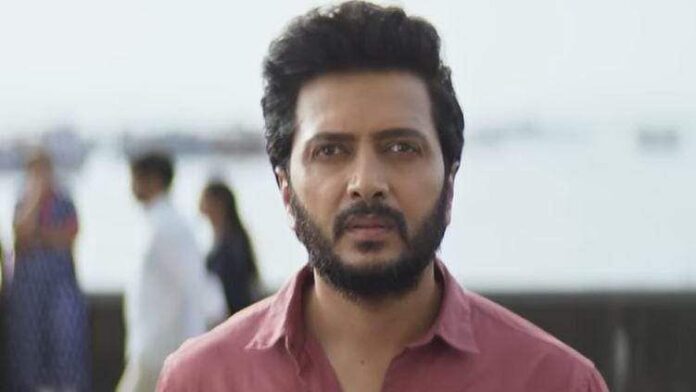Riteish Deshmukh’s directorial debut, Ved, is having a dream run. In just over a month since its release on December 30, the Marathi film has minted more than Rs 55 crore, becoming the second-highest-grossing film in the language, after Nagraj Manjule’s Sairat (2016).
Thanks to the resounding popularity, the actor-director decided to re-release the film in theatres on January 20, with a fresh version of the title track, Ved Tujha, along with some previously deleted scenes.
The song, which originally featured Riteish and Jiya Shankar (who plays his former love interest), has now been reshot with his actor-wife Genelia Deshmukh.
“When we visited the theatres last year for promotions, many people had asked for a romantic track with Satya (Riteish) and Shravani (Genelia). So, we decided to shoot a new song and add a few scenes in the film,” says Riteish.
Son of late politician Vilasrao Deshmukh, Riteish’s privileged background didn’t spare him the initial struggle of a budding actor. He recalls that when he debuted in 2003 with the romantic film Tujhe Meri Kasam, he did not know where his career was headed. “I thought my first film would be my last, but here I am, 20 years later… acting, producing and directing. What more can I ask for?” he says.
Though known for his comic roles in films such as Masti, Dhamaal, Heyy Babyy and Housefull, Riteish has constantly tried to reinvent himself. He took the plunge with the box-office hit Ek Villain (2014), where he played a menacing serial killer.
The same year, he also made his Marathi debut with Lai Bhaari, again a superhit that made over four times its original budget of Rs 8 crore.
“In the beginning, I was part of well-written comedies, but it was getting repetitive. In a single year, I was doing only franchises––Housefull 2, Dhamaal 2, Kya Kool Hain Hum 2, Masti 2… all running at the same time. That is when I decided to do Lai Bhaari and Ek Villain,” he says.
Ved, a romantic drama adapted from the Telugu film Majili, is another attempt by the actor to diversify his repertoire. The film captures the nuances of both unconditional and unrequited love through the lens of modern-day marriage.
“I am glad that for my first directorial, I didn’t choose a comedy because as an actor, you tend to get typecast. I wanted to break that as a director,” he says.
The film is also part of his endeavour to promote and propagate Marathi cinema as mainstream entertainment, something he started as early as 2013 when he turned producer with the film, Balak Palak.
“I keep saying Marathi cinema deserves an equal chance as Hindi films. People go watch the latter if they like the promo, but with Marathi films, they want to wait until someone recommends it. By then, the film is often out of theatres,” he says, adding, “Marathi cinema was doing well from 2010 to 2016, but then there was a lull. We had to try and get the audience’s attention all over again, which is quite difficult, especially now when they are exposed to not just Hindi and Hollywood, but also cinema from the south. Their plates are already full. We need to figure out ways to get them excited to watch a Marathi film.”
The actor, however, has not bid his final goodbyes to comedy—he was last seen in Housefull 4 and Total Dhamaal, both 2019 releases.
“I am in a phase where I want to explore more. Since I haven’t done a comedy in a while, I want to revisit it. I just want to do the kind of work that I enjoy,” he says.
#wanted #break #stereotype #Ved #Cinema #express

